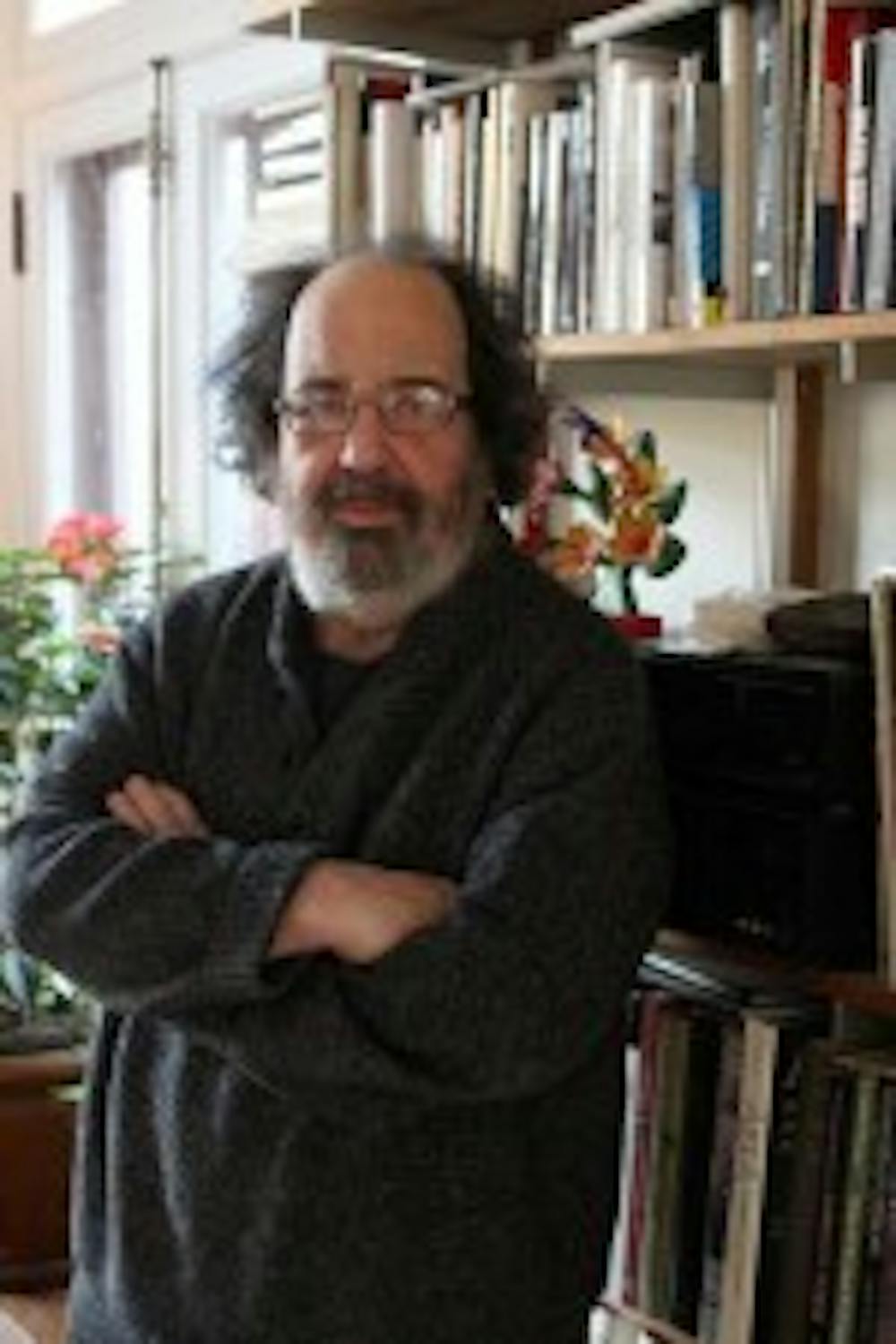Bruce Jackson is "crazy" about Breaking Bad.
The SUNY distinguished professor is teaching a graduate course this spring about the television show. UB will join the University of California, Berkeley and University of California, Irvine as one of three schools in the nation to offer classes about the AMC original programming.
The graduate seminar is titled 'Breaking Down Breaking Bad' and will only be available to students in the visual studies, media study and theater departments and students in the law school.
Word of the class has already spread around the nation. Jackson has received requests for enrollment from around the country, including many from UB's undergraduate student body.
For Jackson - who teaches in various graduate departments including English, sociology and law - Breaking Bad is more than just a show; it's a 60-hour epic storyline. He compares the single narrative of the series to classics such as Homer's The Odyssey and Leo Tolstoy's War and Peace. He believes the show sets itself apart from other cultural icons like The Sopranos by cutting any side-plots and focusing on the transformation of the show's central protagonist, Walter White.
In a way, Jackson said, teaching the show is like teaching a novel.
"[Breaking Bad] isn't as episodic as, say, Boardwalk Empire is. It's episodic the way a large book has chapters," Jackson said. "So it makes it easier to talk about."
Breaking Badis the story of an overqualified high school chemistry teacher who is diagnosed with lung cancer. With no options for affordable healthcare and given a few months to live, he turns to his skills as a chemist and the expanding drug market to earn money for his cancer treatment and for his family. The show has earned 10 Primetime Emmy Awards.
Senior communication major Steve Willert agrees with Jackson in that, in a way, each episode represents a chapter of a large book.
"It's definitely one of those shows where, if you don't watch from the beginning, it might not seem very exciting," Willert said. "Every episode was important in its own way. Something happened in every episode where it was kind of building up. But I think that's what made the show - the build-ups were slow and they didn't rush."
Although other universities have held classes about popular television shows in the past, such as Harvard University's class on The Wire,Berkeley's class on Mad Men and Irvine's class on The Walking Dead, Jackson believes his Breaking Bad class will be different in its approach to the subject matter.
"One of the interesting things about the show is that it can be discussed from so many points of view," Jackson said. "You could talk about the social issues involved ... It gives us a chance to talk about legal ethics and, on a broader scale, it gives us the chance to talk about narrative."
Jackson plans on inviting professionals from various fields as guest speakers to discuss the show's different social and ethical issues. He has already contacted representatives from the Drug Enforcement Agency (DEA) to come in and speak about its work consulting the series executive producer Vince Gilligan. Breaking Bad is the first television show federal agents routinely provided input, according to Jackson.
Jackson also wants to invite legal professionals from UB's law school to discuss the ethical implications of the show's shady lawyer, Saul Goodman. And although they are currently "the hottest people in Hollywood," Jackson hopes to also bring in some of the people that helped produce the show, like series cinematographer Michael Slovis.
Jackson hadn't heard about the critically acclaimed television show until last year, when a student in his weekly film seminar suggested he and a colleague look into it. For the next few nights, Jackson and his wife, fellow SUNY Distinguished Professor Diane Christian, watched the show for hours; they were addicted.
A few episodes into the series, Jackson realized the show was unlike anything he had seen before on television. He thought the show deserved its own class.
"I think something new is happening," Jackson said. "This was brilliantly acted, brilliantly directed, brilliantly photographed."
He was originally content with any professor teaching a class on Breaking Bad. But after some persuasion from his students, he decided to teach the seminar himself.
Jackson, who has been at UB since 1967 and became a SUNY distinguished professor in 1990, was able to get the class promptly approved by the English Department.
Junior environmental engineering major Philip Chan thinks Breaking Down Breaking Bad is a great idea for UB's set of courses.
"Breaking Bad is a really in-depth show, and it delves into characters that have multi-layered qualities to them," Chan said. "Maybe it's not the most realistic situation where a chemist becomes a meth dealer, but it just shows how much you can do with a few characters."
The seminar will take place every Monday for two and a half hours. Jackson isn't sure of the class's exact format, but he envisions a mix of lecture and discussion as well as re-watching of episodes scenes. Homework will likely be to watch and analyze episodes from the show.
For now, Jackson plans on teaching the seminar for one semester and isn't allowing undergraduate students to enroll. Depending on the class's success this spring, Jackson said he is open to holding the class again and potentially allowing undergraduate students to enroll.
Students who still wish to take the class should provide unique insight of the show. For example, Jackson said he permitted one student from another university to enroll in the class after it was full because she was coming from a healthcare background.
Jackson said the show deserves to be taught because it is as much a part of our culture as a new novel or movie.
"It's an incredible narrative achievement," he said. "It's never been done before."
*Joe Konze Jr. contributed reporting to this story.
email: news@ubspectrum.com





